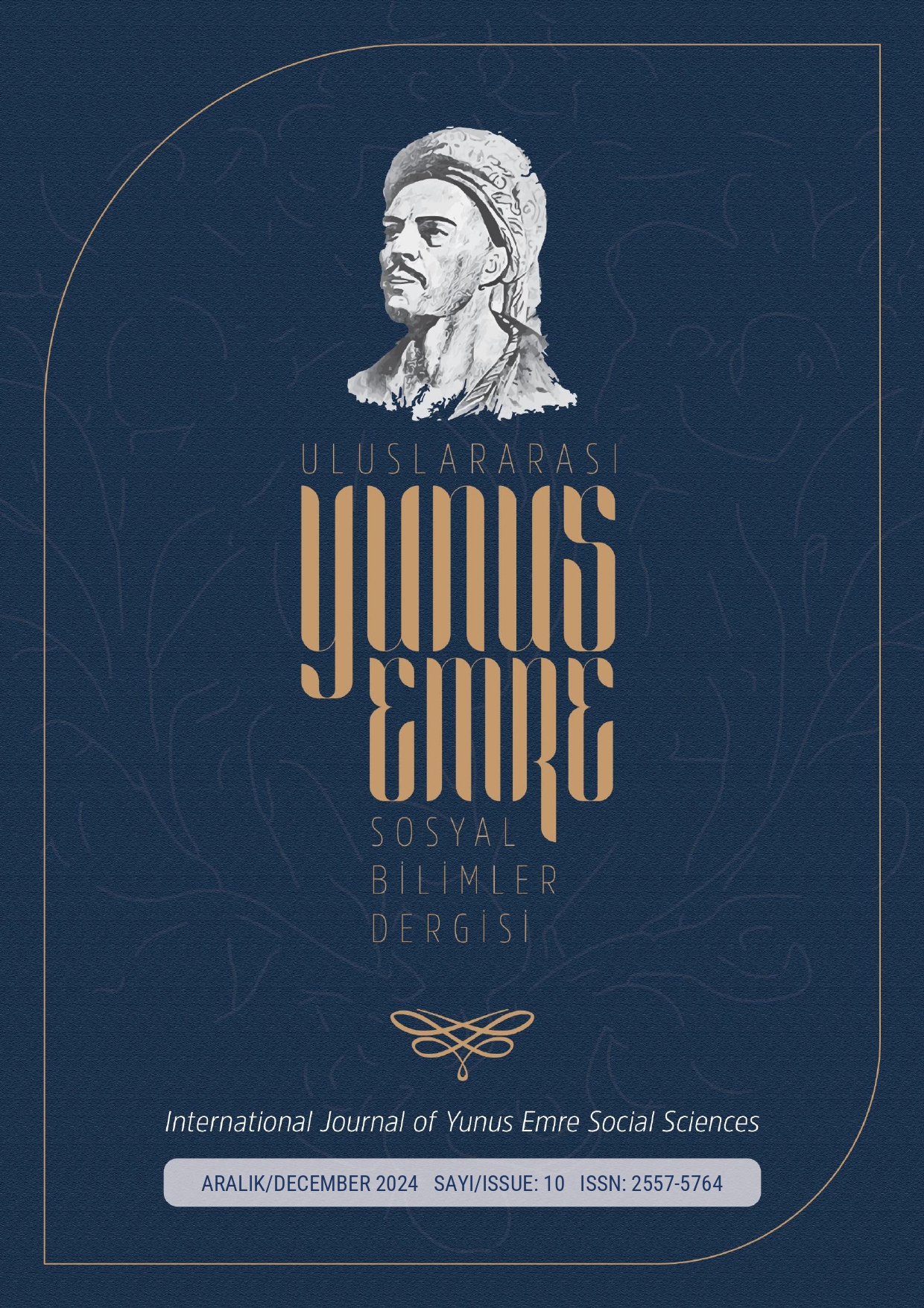VAHDET-İ VÜCÛD DÜŞÜNCESİNE MUTASAVVIFLARIN DELİL GÖSTERDİĞİ AYET VE HADİSLERİN YÛNUS EMRE’NİN ŞİİRLERİNDEKİ İZDÜŞÜMLERİ
Author :
Abstract
Türk edebiyatında hayli etkili olan tasavvuf düşüncesi, özellikle XI-XIV. yüzyıllarda güçlü bir edebî akım hâline gelmiş, birçok meşhur mutasavvıf ve şairler üzerinde derin izler bırakmıştır. Nitekim XIII-XIV. yüzyılda yaşamış olan Yûnus (1240-1320) da tasavvuf düşüncesini ve buna dair konuları, bilhassa aşkla bağlantılı olarak vahdet-i vücûd anlayışını şiirlerinde çokça işlemiştir. İlk önce İbn Arabî tarafından ortaya atılan ve varlığın birliğini benimseyen bu anlayışı kabul edenler olduğu gibi, reddedenler de olmuştur. Bunu kabul edenler, Kur’an ve hadislerden deliller getirerek savunmaya çalışmışlardır. Vahdet-i vücûdu savunanların delil gösterdiği ayet ve hadislere şairlerin de telmihte bulundukları, bazen bunlardan alıntı yaptıkları şiirlere rastlanmıştır. Bu hususta öncü isimlerden birinin Yûnus olduğu fark edilmiştir. Zira Yûnus’un, vahdet-i vücûd anlayışına delil gösterilen ayet ve hadislerin birçoğuna şiirlerinde atıf yaptığı, hatta yer yer iktibaslara başvurduğu dikkat çekmiştir. Dolayısıyla bu çalışmada Yûnus’un vahdet-i vücûdla ilgili şiirlerinde alıntı yaptığı yahut telmihte bulunduğu ayet ve hadisler üzerinde durulmuştur. Bunlar, tespit edilerek şairin hem bu anlayışa hem de Kur’an ve hadislere ne derece vakıf olduğu ortaya konulmaya çalışılmıştır. İçerik analizi ve anlama dayalı şerh yöntemlerinden yararlanılarak oluşturulan bu çalışmayla Yûnus’un hem vahdet-i vücûd düşüncesine gayet vakıf hem de bunu şiir diliyle anlatmada son derece usta olduğu, ayrıca bu bağlamdaki ayet ve hadis birikiminden hayli haberdar olduğu sonucuna ulaşılmıştır.
Keywords
Abstract
The Sufi thought, which has had a significant influence on Turkish literature, became a strong literary movement particularly between the 11th and 14th centuries, leaving profound marks on many renowned mystics and poets. Yûnus (1240-1320), who lived during the 13th and 14th centuries, extensively explored Sufi thought and its related themes, especially the concept of wahdat-i wujud (the unity of existence), in connection with love in his poetry. This doctrine, first introduced by Ibn Arabî, advocates the unity of all existence. While it has been accepted by some, others have rejected it. Those who embraced this idea sought to defend it by providing evidence from the Qur’an and Hadiths. It has been observed that poets who supported wahdat-i wujud often alluded to or directly quoted these scriptural sources in their works. Yûnus stands out as a prominent figure in this regard. Indeed, Yûnus frequently referenced many of the Qur’anic verses and Hadiths used as evidence for wahdat-i wujud in his poetry and occasionally incorporated direct quotations. Consequently, this study focuses on the verses and Hadiths Yûnus alluded to or cited in his poems related to wahdat-i wujud. By identifying these references, the study aims to reveal the extent of Yûnus’s familiarity with this concept as well as his deep knowledge of the Qur'an and Hadiths. Employing content analysis and interpretative commentary methods, the research concludes that Yûnus was not only deeply knowledgeable about wahdat-i wujud but also exceptionally skilled in articulating it through poetic language. Furthermore, he demonstrated significant awareness of the relevant Qur’anic and Hadith sources in this context





